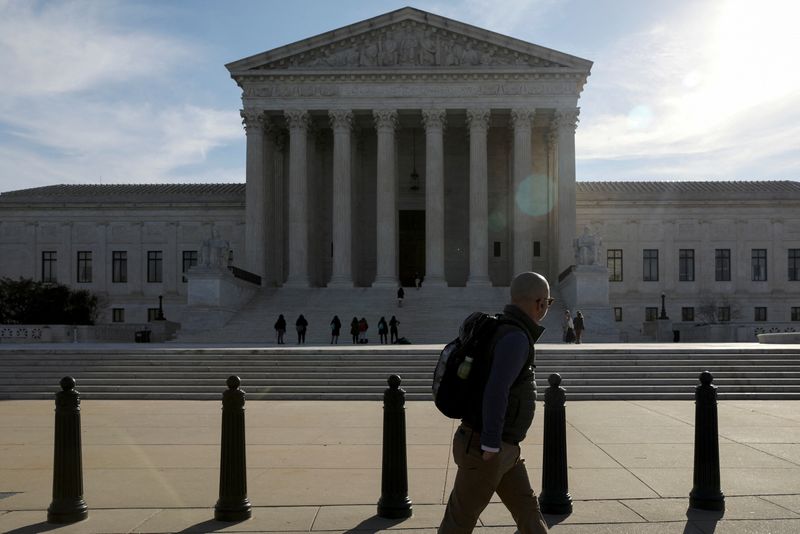By Andrew Chung
WASHINGTON (Reuters) - The U.S. Supreme Court should dismiss a major case from North Carolina that could give more power over federal elections to state politicians because the matter is being reconsidered by a lower court, North Carolina said in a filing on Monday, while the Republican lawmakers at the center of the dispute disagreed.
The disagreement over the future of the case is the latest flashpoint in litigation that could have a significant impact on U.S. elections in the coming years and decades. The case began as a legal fight over a map drawn by Republican state legislators of North Carolina's 14 U.S. House of Representatives districts - one that a lower court blocked as unlawfully disadvantageous for Democrats.
The state's Department of Justice, headed by Democratic Attorney General Josh Stein, said that a decision by the North Carolina Supreme Court to revisit its ruling last year invalidating the Republican-drawn map means there is not a final judgment typically needed to trigger a review by the top U.S. judicial body.
The justices should "dismiss this case for lack of jurisdiction" given that the "decisions on review are nonfinal," the state said.
Democratic President Joe Biden's administration, which had argued against the Republican position when the U.S. Supreme Court heard arguments in the case in December, also suggested that the justices have reason to avoid a decision.
The state lawmakers who defended the Republican-drawn map and some of the plaintiffs who challenged its legality urged the justices to press ahead and issue a ruling in the case.
The Republican lawmakers had urged the U.S. Supreme Court to embrace a once-marginal legal theory now embraced by many conservatives that would remove any role of state courts and state constitutions in regulating presidential and congressional elections.
The legal theory, called the "independent state legislature" doctrine, is based in part on the U.S. Constitution's statement that the "times, places and manner" of federal elections "shall be prescribed in each state by the legislature thereof."
In its filing on Monday, Biden's administration said that the state court's action could "effectively moot" the part of the case linked to that language in the Constitution.
Neal Katyal, an attorney for Common Cause, a voting rights group that was among the challengers to the map, disagreed: "The court should, if at all possible, decide this question now, rather than on an emergency basis during the 2024 election cycle."
The justices indicated on March 2 that they were mulling the effect of the lower court's decision to rehear the case on their ability to issue a decision, and asked the various parties to weigh in on the matter. If the justices decide they no longer have jurisdiction, they could dismiss the case.
Since its decision invalidating the map, the state court has undergone a change in its ideological makeup. In November's elections, it flipped from a 4-3 Democratic majority to a 5-2 Republican majority.

At the rehearing last week, several of its conservative members appeared sympathetic toward the Republicans, who control the state legislature and the map-drawing process. An outcome favoring them would boost the party's chances of maintaining its slim U.S. House majority next year.
During the arguments in December, the U.S. Supreme Court's conservative majority appeared inclined to rule in favor of the Republicans and limit state judicial power to overrule voting policies crafted by state politicians, though perhaps without going as far as the lawmakers wanted.